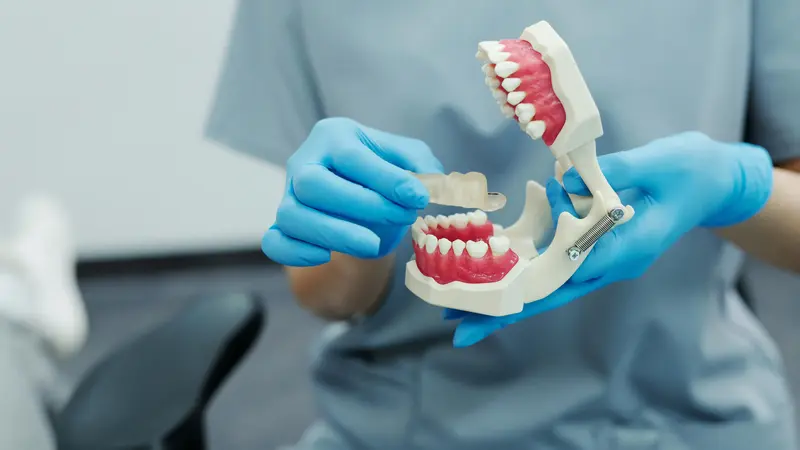Ever notice a strange ache or feel unusually tired and just shrug it off? With so much going on, Body Might easy to overlook small symptoms when nothing feels urgent. But our bodies don’t always shout—sometimes they whisper. A slight pain, some swelling, or a new sensitivity can be early signs that something’s off. In this blog, we will share some of the small, everyday signs that could be trying to tell you something about your health—and why catching them early can make a big difference.
Don’t Wait for the Alarm to Go Off
Most people think health problems come with sirens. Pain that knocks you down, rashes that can’t be missed, or fevers you can’t ignore. But the majority of issues start quietly. Subtle changes that seem minor can be early flags, and how you respond to them can change everything.
Take your teeth, for example. A little bit of extra sensitivity or a faint discoloration might not seem like a big deal. You might notice a slightly strange taste in your mouth or a mild ache after eating something sweet. These are the kinds of signals many people overlook. But they can point to the early stages of a cavity, which, if caught in time, can be treated quickly and painlessly. Left alone, though, that small issue can grow into something that needs drilling, filling, or worse.
This idea extends beyond dental care. It’s part of a broader trend toward proactive wellness. People are more aware now of the importance of early detection, thanks in part to shifting healthcare models and rising costs. It’s no longer just about treating disease. It’s about catching it before it has a chance to spread. The same way tech companies release software updates to fix bugs before they crash your device, your body drops hints to stop problems early.
The Low-Key Language of Fatigue
We all get tired. That’s normal. But there’s a difference between needing a nap after a busy day and feeling like no amount of sleep helps. Ongoing fatigue that doesn’t improve with rest might be your body’s way of saying something’s off. Maybe you’re dehydrated, or your iron levels are low. Maybe your blood sugar’s out of whack, or your thyroid needs attention. Sometimes, it’s even tied to your mental health. Chronic stress or quiet anxiety can wear you down in sneaky ways, leaving you foggy, slow, or just generally not yourself.
Instead of pushing through every time, take a beat to check in. Are you sleeping well? Eating enough? Drinking water? Do you feel rested, or just not completely exhausted? That difference matters. Fatigue is a general symptom, but it’s also a valuable one. It gives you a chance to course-correct before more obvious signs develop.
Skin: Your Outer Early Warning System
Your skin is one of the best mirrors of your internal health. Dry patches, unexpected breakouts, or sudden redness can be signs of imbalance. These changes might reflect allergies, dehydration, hormone shifts, or something in your diet that’s not agreeing with you. If your skin starts doing something new, don’t just grab a different lotion. Think about what else has changed. New foods? A stressful week? Less sleep? More screen time? Skin often reacts to these changes before other parts of your body catch up.
And it’s not just your face. Changes in your scalp, lips, hands, or even your nails can all tell you something. Peeling nails or vertical ridges, for example, might relate to vitamin levels or circulation. Listen to what your body’s largest organ is trying to say.
Movement and Mobility Clues
You know your body’s rhythm—how it feels when you get up, walk, stretch, or bend. So when those movements suddenly feel stiff or sore, even a little, take note. Maybe your neck feels tighter than usual, or your knees click more when you climb stairs. It doesn’t mean disaster is around the corner, but it might mean you need to stretch more, hydrate better, or ease into more supportive shoes.
A subtle limp, even one you don’t realize you’re doing, could be a reaction to muscle imbalance or joint strain. Ignoring these signs means risking injury later. You don’t need to panic about every creaky joint, but if something feels off for a few days or keeps coming back, it’s worth a little attention.
Digestive Patterns: Don’t Normalize Discomfort
Your digestive system keeps a tight schedule. When things shift—like bloating more often, slower digestion, or changes in regularity—it may be a sign that something in your routine needs adjusting. Food intolerances can creep in slowly. Stress, medication, or dehydration can disrupt digestion too. Pay attention to changes in appetite or comfort after meals. If your stomach is consistently unhappy, it might not just be “something you ate.” It could be your body flagging an issue early on, long before it becomes a major concern.
Gut health is getting more attention in the wellness space, and for good reason. It’s connected to everything from immunity to mood. So that extra discomfort after eating dairy or that persistent bloating after certain meals isn’t something to brush off.
Breath and Heart Rate Hints
You don’t have to be an athlete to notice how your body responds to movement. If walking up stairs suddenly leaves you winded, or your heart feels like it’s racing without clear reason, that’s a sign to pay attention.
These shifts might be early clues about cardiovascular health or stress levels. You don’t need to hook yourself up to machines daily, but being aware of your own baseline matters. Sudden changes without any lifestyle adjustments should prompt a closer look. And breath matters outside of workouts too. Feeling short of breath during calm moments or while sitting still could point to a need for evaluation. It could be something as simple as posture or as important as an early sign of something your body wants you to investigate.
Tune In Before You Power Through
We’re taught to be tough. Push through. Shake it off. But what if the smarter move is to pause? Not panic, but pause. Pay attention to small changes, listen when your body feels different, and give yourself room to respond. Early signals don’t mean something’s wrong. They mean your body is doing what it’s designed to do: self-correct. But it needs your cooperation. We live in a time where health has become personal. People want control over their own well-being. That starts by recognizing the quiet signals—not just the loud ones.
When you catch a problem early, whether it’s tooth decay or fatigue, the fix is usually easier, cheaper, and less invasive. More importantly, it helps you stay in control of your health instead of reacting only when things get big and obvious. Trust your instincts. Notice the small stuff. And remember: your body isn’t trying to annoy you. It’s trying to keep you going. Listen to it before it starts shouting. Visit worldusmagazine for more information.


